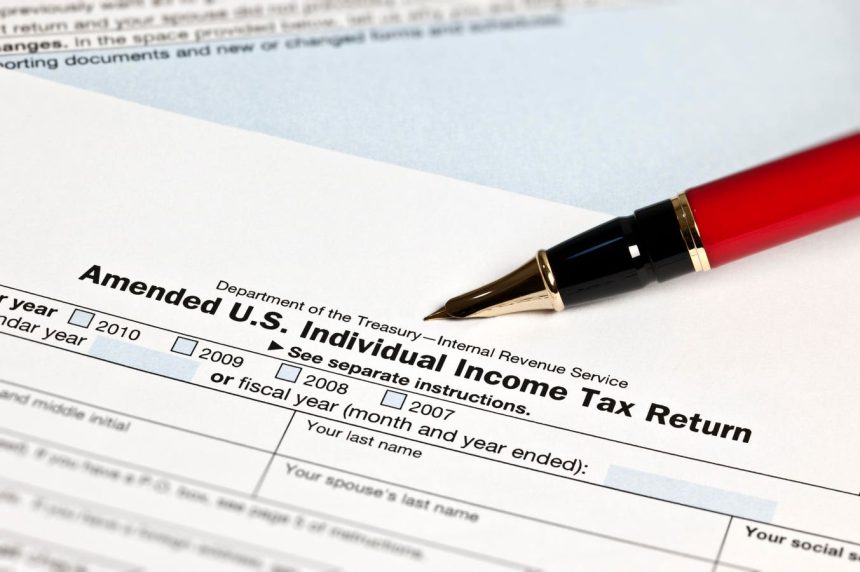When should you amend your tax return and when is it required? You need to file a tax return with the IRS each year if your income is over the requisite level. In fact, you can be prosecuted for failure to file (a misdemeanor) or for filing falsely (a felony). If you are thinking about amending, one test is to ask yourself whether the return you filed was accurate to your best knowledge when you filed it. Was it?
If not, you should probably amend it. If the return you filed was accurate to the best of your knowledge when you filed it, you are probably safe in not filing an amendment (but you still may want to). If you are being audited, amending may also send the wrong signal, further jeopardizing your position.
So think about it carefully. Of course, you may want to amend. Perhaps you realized that you made a mistake, forgot payment or Form W-2, or left off the income from a Form 1099 you found in the bottom of a drawer. Math errors are not a reason to file an amended return, since the IRS will correct math errors on your return. Similarly, you usually shouldn’t file an amended return if you discover you omitted a Form W-2, forgot to attach schedules, or other glitches of that sort. The IRS may process your return without them, or will request them if needed.
You usually can’t correct a tax return without amending it. However, there is an exception, if you act quickly once you have filed your original return. If you file a ‘superseding’ return before the due date for filing the original return (including extensions), it can take the place of the originally filed return. Say your original return is due April 15, but you file in February. Then, in March, you realize you made a big mistake. If you file a superseding return by April 15, it can wipe out the return you filed in February.
In effect, the “errors” of the first original return didn’t happen. It can be used to make an election that cannot be made on an amended return, or to make certain other changes. But be wary about this unusual procedure. The IRS can become confused if you try this unusual procedure. You may end up having a dispute (or at least correspondence or discussions) about which of the “original” returns is valid, and whether an amended return actually functions as a superseding one.
Timing and proof of when you filed each one is important. Beyond this exception, you can fix mistakes only by amending your return. If you later find that you made a mistake or you receive a revised Form 1099 or K-1, the IRS says you should amend. But you are not under an affirmative obligation to file an amended tax return. But you still may want to. If you do, you can’t cherry-pick. You can’t make only those corrections that get you money back, but not those that increase your tax liability.
If you want to amend, you must file a Form 1040X within three years from the date you filed your original return, or within two years from the date you paid the tax, whichever is later. Amended returns are prepared on Form 1040X, whether you previously filed Form 1040, 1040A or 1040EZ. If you are amending more than one tax return, prepare a separate 1040X for each return. If you file an amended return asking for considerable money back, the IRS may review the situation even more carefully. As an alternative, you can apply all or part of your refund to your current year’s tax.
Normally the IRS has three years to audit a tax return. You might assume that filing an amended tax return would restart that three-year statute of limitations. Surprisingly, it doesn’t. In fact, if your amended return shows an increase in tax, and you submit the amended return within 60 days before the three-year statute runs, the IRS has only 60 days after it receives the amended return to make an assessment.
This narrow window can present planning opportunities. Some people amend a return right before the statute expires. Plus, note that an amended return that does not report a net increase in tax does not trigger any extension of the statute of limitations.
If your amended return shows that you owe more tax than on your original return, you will owe additional interest and probably penalties. Even though you might be amending a return from two years ago, the due date for your original return and for payment has long passed. Interest is charged on any tax not paid by the due date of the original return, without regard to extensions. The IRS will compute the interest and send you a bill if you don’t include it. If the IRS thinks you owe penalties it will send you a notice, which you can either pay or contest.
Read the full article here









